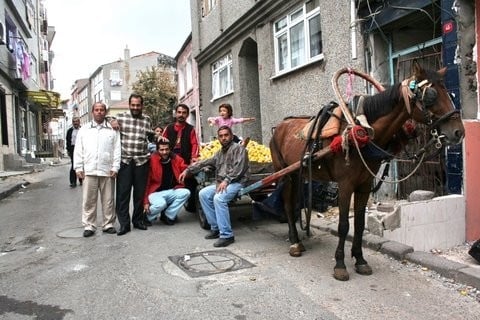
Türkiye: Housing and education rights for Roma
Duration: December 2015 – August 2017
Regions/countries: Türkiye: Gaziantep, Akhisar/Manisa, Diyarbakır, Edirne, Izmir, Artvin, Istanbul, Ankara.
Minorities: Roma people
Lead organization: MRG
What was this programme about?
This project contributed to the respect for the right to education and housing of Roma in Türkiye and tackle the discrimination these communities face within the education and housing systems through:
- Strengthening capacity of and collaboration amongst civil society organizations and activists working on Roma issues to document, monitor campaign and provide legal aid on the issue of discrimination in education and housing.
- Increasing awareness amongst decision makers at all levels of the discrimination in practice affecting Roma in the education and housing system and stronger commitment to changes.
- Providing quality and updated information available on discrimination of Roma in education and housing to support the work of civil society and to shape policies and practices.
Why did we deliver this programme?
Although ethnic data collection is not carried out officially, it is widely accepted as over two million Roma live all over Türkiye. They are the most vulnerable minority in Türkiye. Not integrated economically and socially, they face direct or indirect discrimination in many aspects of their life.
Lack of awareness and lack of commitment are particularly visible in the areas of Education and Housing compared to other areas such as access to health services and social aid, which have shown more improvements relatively. When it comes to the right to education, Roma face several problems and discrimination in exercise of the right to education. Due to poverty many Roma children are not enrolled in schools and when they are too many drop out. There is no legal-administrative mechanism clearly defined by law to help them seek for remedy especially as there is no equality body which can assist Roma in seeking remedies. Similarly there is no legal aid system that can help victims of discrimination to challenge their situation.
Roma and other residents of these quarters were not adequately involved in planning process of the regeneration of these areas and many of them were actually displaced without benefiting from a proper housing plan that would realistically fit their economic-social conditions and needs. Indeed, housing and urban development policies that are being developed and implemented by the state do not pay specific attention to the particular needs and situation of the Roma.
What did we do?
- Training workshops on the right to education, housing, anti-discrimination and documenting such discrimination.
- Developing strategic cases in regards to housing and education rights.
- Improving advocacy and dialogue at local, national and regional level between minorities and authorities.
- Field research and subsequent publication of findings report.
Who ran the programme with us?
Zero Discrimination Association (ZDA): The Zero Discrimination Association (Sıfır Ayrımcılık Derneği) was founded in Istanbul in 2009 by a group of activists with the aim of working to prevent rights violations and discrimination against all disadvantaged groups, particularly against Roma and communities following a Roma lifestyle.
The aim of the association is to support the social development of economically, socially and culturally at-risk and disadvantaged communities and to carry out projects within a framework of dialogue and solidarity that tackle prejudice and discrimination against these communities and promote social unity.
The association:
- Prepares reports on the problems faced by Roma, which are then used to lobby the government for solutions, and holds meetings on these issues with public institutions on a local or national level.
- Runs various advocacy activities and campaigns in order to raise public awareness about the problems faced by Roma.
- Provides consultancy on various issues to Roma associations throughout the country.
- Offers support to Roma associations for institutional capacity building.
Evaluation
‘Overall, it was observed that the project was implemented and managed effectively to reach the expected outcomes, with adoptive and insightful approaches in face of those risks. MRG and HF have swiftly and effectively dealt with those challenges that are within their control, such as challenges faced during the monitoring process. Other factors that have promoted effective implementation have been: MRG’s partnership with HF, which has a very strong and respectable public reputation; project coordinators’ commitment, and competence in implementing the project; their ability to adopt to emerging challenges in a timely manner; and having a good selection of experts in the advisory board.’
Read the full evaluation report.
 This programme is funded by the European Union. This content is the sole responsibility of Minority Rights Group International and can under no circumstances be regarded as reflecting the position of the European Union.
This programme is funded by the European Union. This content is the sole responsibility of Minority Rights Group International and can under no circumstances be regarded as reflecting the position of the European Union.